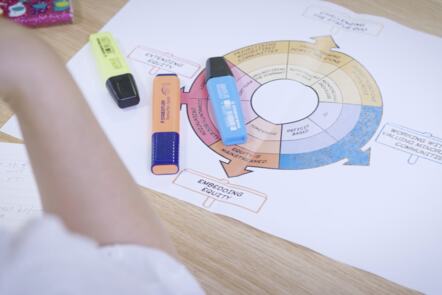
UCL (University College London)
- Start Date: 23 May, 2022
- 3 weeks
- Study Content: Videos
Discover a new framework to help you support all learners and promote equity in informal STEM learning.
Course Fee: Free
Certificate Cost: See Fees and Eligibility
Course Description
This course is made available through the eLearnAfrica and FutureLearn partnership.
Understand the importance of equity in STEM learning
There are ongoing inequalities in the STEM (science, technology, engineering, and mathematics) sector, which has traditionally excluded people from minoritised communities.
This three-week course will help you reflect on and develop equitable and inclusive practice, to ensure that your organisation can effectively support diverse young people’s engagement with STEM.
You’ll gain a deeper understanding of equity issues, the factors influencing inequalities in STEM and what to do about it. By the end, you’ll have created a plan of action to make your practice more equitable and inclusive.
Use the Equity Compass to support social justice
You’ll be introduced to the Equity Compass – a practical, evidence-based tool that supports equitable practice – and learn how and why you could use it.
Using the Equity Compass framework, you’ll reflect on and develop your practice. Through case studies from informal STEM learning settings, reflective questions, and discussions, you’ll learn how to plan activities that are equitable and support all young people, particularly those from minoritised communities.
Learn from the specialists at University College London
Guided by the experts in informal STEM learning and equitable practice at the University College London (UCL), you’ll develop the knowledge to promote equity in informal STEM learning settings.
By the end of the course, you’ll have the confidence to take your skills into your own STEM learning environment.
This course is designed for informal STEM learning practitioners working in out-of-school organisations and roles such as science museums and centres, zoos, STEM clubs, festivals, community organisations and makerspaces.
The course is particularly relevant to informal STEM learning practitioners working in education roles, such as planning and delivering education programmes. The course will also benefit informal STEM learning practitioners working in other roles, such as exhibition design and management, as well as those working to support young people to engage with STEM outside informal STEM learning, such as teachers, funders, and policy makers.
Certificate cost may vary. You will be redirected to the host page for cost and payment options.
UCL (University College London)
UCL was founded in 1826. It was the first English university established after Oxford and Cambridge, the first to open up university education to those previously excluded from it, and the first to provide systematic teaching of law, architecture and medicine.
UCL is among the world’s top universities, as reflected by performance in a range of international rankings and tables. UCL currently has over 35,000 students from 150 countries and over 11,000 staff. UCL’s annual income is more than £1 billion.
This institution is available on eLearnAfrica through partnership with FutureLearn.
COLLABORATION POLICY
By enrolling in a course on or through eLearnAfrica, you are joining a special worldwide community of learners. The aspiration of eLearnAfrica is to provide anyone with an internet connection access to courses from the best universities and institutions in the world and to provide our learners the best educational experience internet technology enables. You are a part of the community that will help eLearnAfrica achieve this goal. eLearnAfrica depends upon your motivation to learn the material and to do so with honesty and academic integrity. In order to participate in eLearnAfrica, you must agree to the Honor Code below and any additional terms specific to a class.
ELEARNAFRICA HONOR CODE PLEDGE
By enrolling in a course, program, or degree hosted on the eLearnAfrica App or Site, I agree that I will:
-
Complete all tests and assignments on my own, unless collaboration on an assignment is explicitly permitted.
-
Maintain only one user account and not let anyone else use my username and/or password.
-
Not engage in any activity that would dishonestly improve my results, or improve or hurt the results of others.
-
Not post answers to problems that are being used to assess student performance.
-
Abide by any and all requirements of the eLearnAfrica Participants as may regard the expectations of civil or academic behavior or of community standards.
VIOLATIONS
If you are found in violation of the Terms and Conditions or Honor Code, you may be subject to one or more of the following actions:
-
Receiving a zero or no credit for an assignment;
-
Having any certificate earned in the course withheld or revoked;
-
Being unenrolled from a course, learning program or degree program; or
-
Termination of your use of the App and/or Site.
-
Additional actions may be taken at the sole discretion of eLearnAfrica and eLearnAfrica course providers.
No refunds will be issued in the case of any corrective action for such violations.
Honor code violations will be determined at the sole discretion of eLearnAfrica, the Partners, or Members. You will be notified if a determination has been made that you have violated this honor code and you will be informed of the corresponding action to be taken as a result of the violation.
CHANGING THE HONOR CODE
Please note that we review and may make changes to this Honor Code from time to time. Any changes to this Honor Code will be effective immediately upon posting on this page, with an updated effective date. By accessing the App and/or Site after any changes have been made, you signify your agreement on a prospective basis to the modified Honor Code and any changes contained therein. Be sure to return to this page periodically to ensure familiarity with the most current version of this Honor Code.
Effective Date: September 22, 2016
